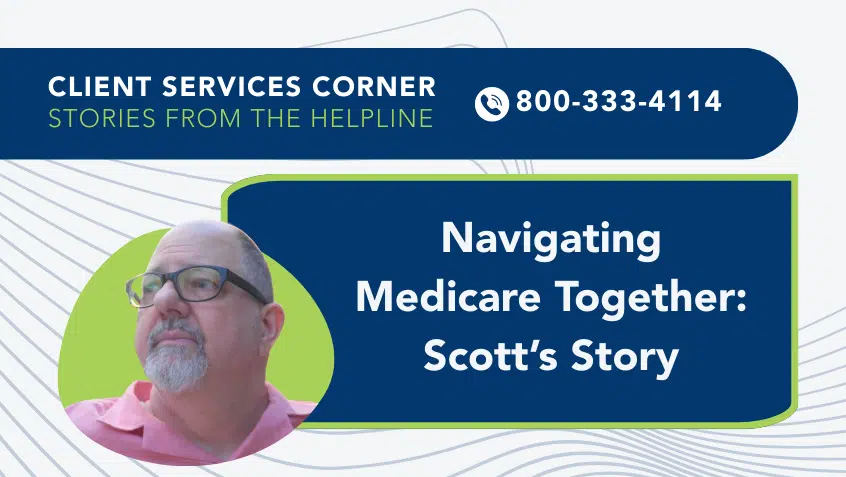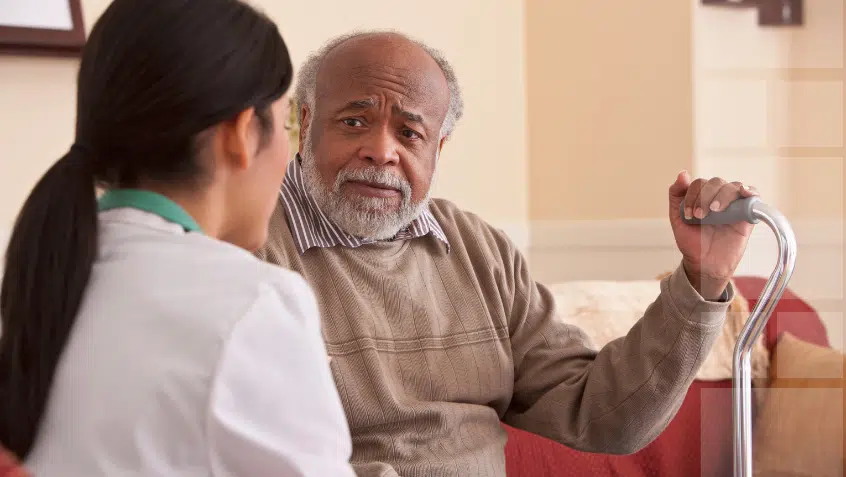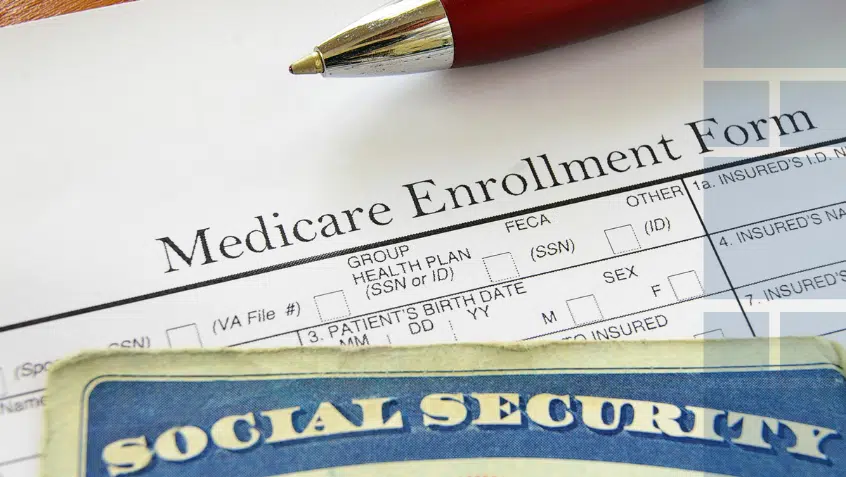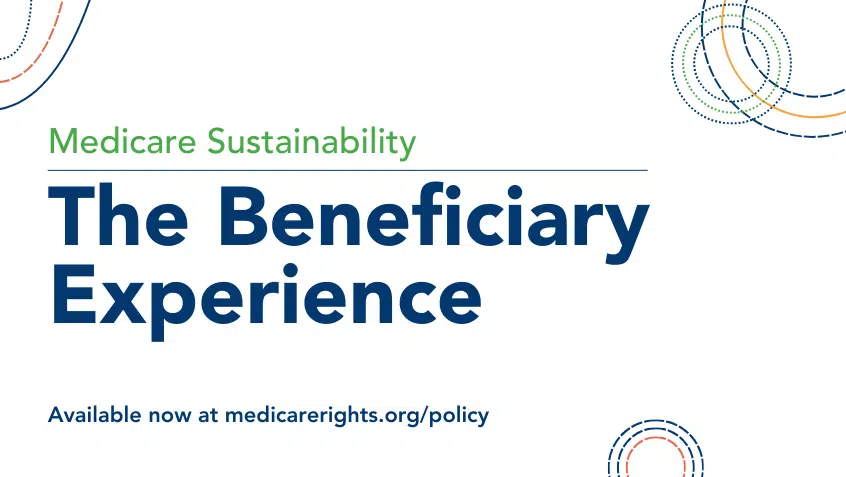Join Us Live for a Discussion on Medicare, Democracy, and the Future of Health Care
Medicare Rights Urges Congress to Strengthen Medicare and Medicaid in Year-End Legislation
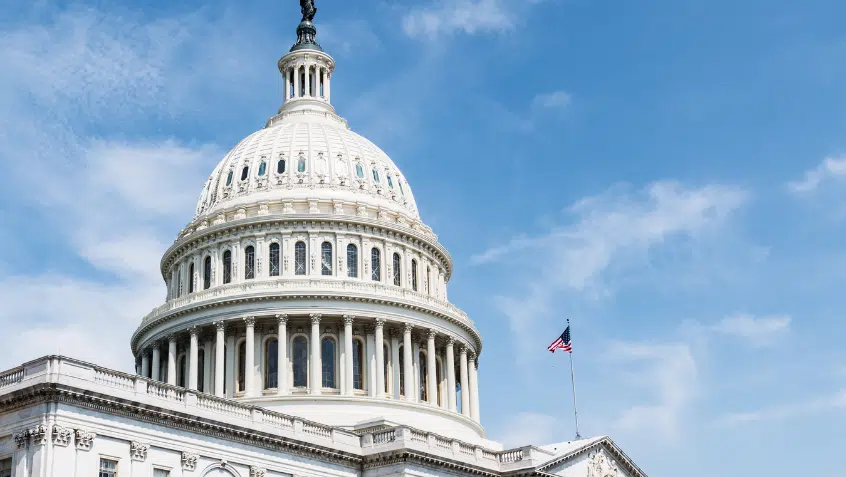
The Medicare Rights Center recently joined 31 partner organizations in urging Congress to strengthen Medicare and Medicaid this year. The letter was organized and distributed through the Leadership Council of Aging Organizations (LCAO), a coalition of 68 national nonprofit organizations concerned with the well-being of America’s older population and committed to representing their interests in policy-making arenas.
The letter focuses on two important Medicare reforms.
Funding for Low-Income Medicare Beneficiary Outreach and Enrollment Activities
Continued Funding for Low-Income Medicare Beneficiary Outreach and Enrollment Activities is critical. Community-based organizations across the country, including Medicare State Health Insurance Assistance Programs (SHIPs), rely on these dollars to help support their enrolling low-income Medicare beneficiaries in programs that can make their coverage more affordable. As covered in our alert last week, this funding has a long history of success and bipartisan support. But without congressional action, it will expire on December 31, 2024. We urge Congress to make this crucial program permanent.
The Improving Access to Mental Health Act
The bipartisan Improving Access to Mental Health Act (H.R. 1638/S. 838) would improve access to Medicare mental health services by allowing clinical social workers (CSWs) to provide more care under Part B, such as conducting Health and Behavior Assessment and Intervention (HBAI) services and treating beneficiaries receiving Skilled Nursing Facility care. It would also help with retention by increasing CSW Medicare reimbursement rates from 75 percent of the physician fee schedule (the current rate) to 85 percent (the rate paid to other nonphysician providers).
Additional Medicaid Bills with Largely Bipartisan Support
The letter also urges swift action on several largely bipartisan Medicaid bills:
The Ensuring Access to Medicaid Buy-In Program Act (H.R. 8107), as amended to include H.R. 8106. This bill would lift the age limit for the Medicaid buy-in program for working people with disabilities. It also includes H.R. 8106, which would eliminate the Institutional Level of Care (ILOC) requirement for receipt of Medicaid home and community-based services (HCBS). These changes would ease and improve access to critical coverage and needed care.
The Money Follows the Person Permanency Act of 2024 (H.R. 8109), which would amend the Deficit Reduction Act of 2005 to make the Money Follows the Person (MFP) rebalancing demonstration permanent. Since its inception, MFP has helped states expand community living opportunities for older adults and people with disabilities. Lapses in funding and short-term extensions threaten to erode this progress. Making the program permanent would best ensure its continued success.
The Protecting Married Seniors from Impoverishment Act of 2024 (H.R. 8110) would permanently allow states to extend impoverishment protections to spouses of Medicaid HCBS recipients, in line with the current safeguards for spouses of beneficiaries receiving institutional care. The existing imbalance threatens to undermine state progress in helping older adults and people with disabilities remain at home and in the community, as well as erodes beneficiary choice and economic security.
The Stop Unfair Medicaid Recoveries Act (H.R. 7573) would prohibit states from engaging in estate recovery practices and limit the ability of states to place liens on a Medicaid beneficiary’s property. These policies can harm families, contribute to inequities, and provide little financial gain for state Medicaid programs. As the Medicaid and CHIP Payment and Access Commission (MACPAC) has pointed out, estate recovery “contributes to generational poverty and wealth inequity, placing particular burdens on people of color” and “recoups relatively little—only about 0.55 percent of total fee-for-service [long-term services and supports] spending.”
Further Reading
Read the letter here.
Ask your lawmakers to support funding for low-income Medicare beneficiary outreach and enrollment activities. Learn more and weigh in today.
Show Comments
We welcome thoughtful, respectful discussion on our website. To maintain a safe and constructive environment, comments that include profanity or violent, threatening language will be hidden. We may ban commentors who repeatedly cross these guidelines.
Help Us Protect & Strengthen Medicare
Donate today and make a lasting impact
More than 67 million people rely on Medicare—but many still face barriers to the care they need. With your support, we provide free, unbiased help to people navigating Medicare and work across the country with federal and state advocates to protect Medicare’s future and address the needs of those it serves.
The Latest
Most Read
Add Medicare to Your Inbox
Sign up to receive Medicare news, policy developments, and other useful updates from the Medicare Rights.
View this profile on InstagramMedicare Rights Center (@medicarerights) • Instagram photos and videos

